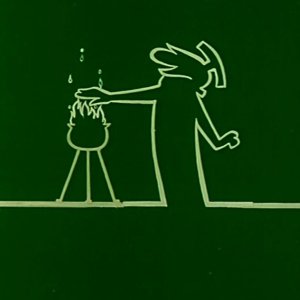The "found family" trope is one of my favourite tropes, and this little drama delivered.
When I first watched this series some time ago, I did not know ANY of the actors (yeah, I don't know how I managed that, either) -- and I still liked it. So, it's not all fanservice here. It does feel like a low budget, Covid-influenced production; most of the scenes take place in or around the house, there's only a small cast of characters, it still manages to tell a good story about six people who find strength and support in each other.
One aspect I am not a fan of is the sub-plot about the father, which was a bit too "lakorn"-ish for me. But it's thankfully only a small part of the series.
I love the credit song and it's text -- it's been stuck in my head since I started rewatching this a few weeks ago, and the text is such a comfort.
A short note on the title, "I'm Tee, Me too" is okay -- but the Thai title คนละทีเดียวกัน is great and has many meanings in one sentence!
Maybe like this: คนละ = to each one, each one differently -- ที = Tee -- เดียวกัน -- identical, same.
Or: คนละ = to each one, each one differently -- ทีเดียว = quite, very; a single occasion -- กัน = each other, together.
Or you could read every syllable on its own as one word each; here's a link, and you can find your own translation http://thai-language.com/?blu=pLnF0LfV4LTVwseh0bkI
All of the Tees get their own story, their own problems they have to live with -- and I like how their psychological issues are not completely healed at the end. In that way, the series takes issues of the mind very seriously. And at the same time, the way the problems and the "solutions" are presented are hilarious.
This good balance of comedy and deeper meaning makes it a drama that is well-worth watching.
When I first watched this series some time ago, I did not know ANY of the actors (yeah, I don't know how I managed that, either) -- and I still liked it. So, it's not all fanservice here. It does feel like a low budget, Covid-influenced production; most of the scenes take place in or around the house, there's only a small cast of characters, it still manages to tell a good story about six people who find strength and support in each other.
One aspect I am not a fan of is the sub-plot about the father, which was a bit too "lakorn"-ish for me. But it's thankfully only a small part of the series.
I love the credit song and it's text -- it's been stuck in my head since I started rewatching this a few weeks ago, and the text is such a comfort.
A short note on the title, "I'm Tee, Me too" is okay -- but the Thai title คนละทีเดียวกัน is great and has many meanings in one sentence!
Maybe like this: คนละ = to each one, each one differently -- ที = Tee -- เดียวกัน -- identical, same.
Or: คนละ = to each one, each one differently -- ทีเดียว = quite, very; a single occasion -- กัน = each other, together.
Or you could read every syllable on its own as one word each; here's a link, and you can find your own translation http://thai-language.com/?blu=pLnF0LfV4LTVwseh0bkI
All of the Tees get their own story, their own problems they have to live with -- and I like how their psychological issues are not completely healed at the end. In that way, the series takes issues of the mind very seriously. And at the same time, the way the problems and the "solutions" are presented are hilarious.
This good balance of comedy and deeper meaning makes it a drama that is well-worth watching.
Esta resenha foi útil para você?


 4
4














